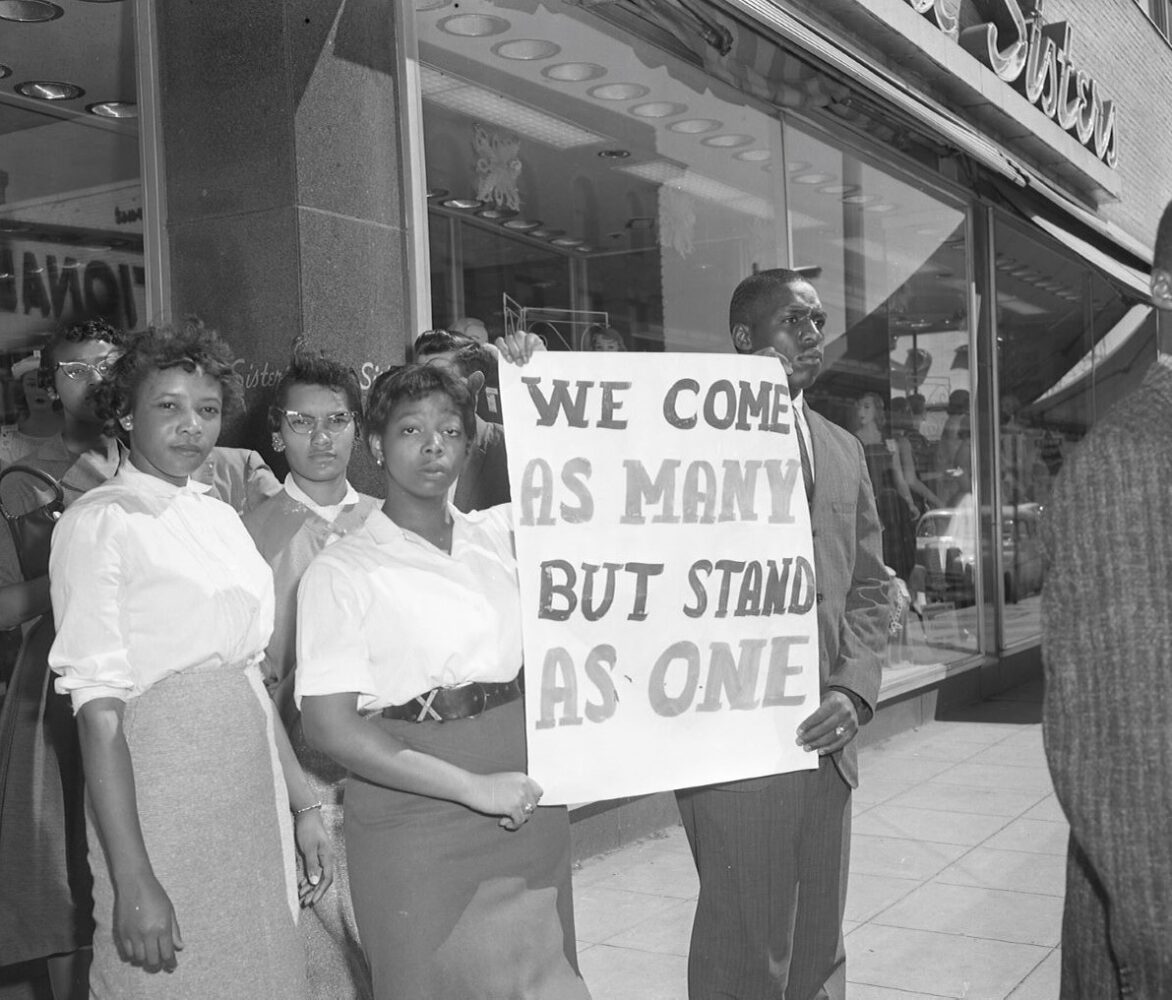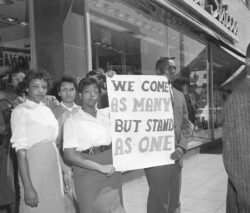Garner v. Louisiana
In 1960 the state charged student protestors with disturbing the peace, resulting in a US Supreme Court ruling that affirmed Black communities’ constitutional right to protest.

The Advocate / Capital City Press
Students Protest Inequality in the Wake of Baton Rouge Sit-Ins
Black youth activism in 1960s Louisiana forced legal reforms that ended racial discrimination in public accommodations. The 1961 US Supreme Court decision Garner v. Louisiana established a judicial precedent affirming Black communities’ constitutional right to protest that put further pressure on Congress to pass legislation outlawing what is popularly referred to as Jim Crow segregation. Increasing national and local challenges to white supremacist policies resulted in a key legal reform of the modern civil rights movement, the Civil Rights Act of 1964.
In March 1960 sixteen Southern University students practiced nonviolent civil disobedience in Baton Rouge. A key civil rights organization, the Congress of Racial Equality (CORE), trained the students in nonviolent civil disobedience as part of a wave of protests throughout the South challenging white-only lunch counters and businesses as part of the sit-in movement. The sit-in movement began on February 1, 1960, in Greensboro, North Carolina, with four Black college students at North Carolina Agricultural and Technical State University. Sit-ins quickly spread as a popular and effective method of Black youth protest throughout the South on college campuses.
On March 28, seven Southern University students sat-in at the Kress department store lunch counter in downtown Baton Rouge and were arrested for “disturbing the peace” within twenty minutes. The next day seven more students were arrested for sitting in at Sitman’s drugstore lunch counter, and later that day two more students were arrested at the Greyhound bus station lunch counter. Their bail was set at $1,500 per student, which was quickly raised by the local Black community in Baton Rouge.
The arrested students were Eddie C. Brown Jr., John Burrell Garner, Janette Hosten Harris, Colonel Lawrence Hurst, John W. Johnson, Kenneth Johnson Jr., Mark H. Jones, Sandra Ann Jones, Vernon J. Jordan, Mary Enola Briscoe Kamaini, Jo Ann Morris, Donald Moss, Larry L. Nicholas, Charles L. Peabody, Marvin E. Robinson, and Felton Valdry. All sixteen students were indefinitely suspended by Southern University president Dr. Felton Clark, who had forbidden students from participating in sit-ins. The students’ expulsion spurred further community-wide protest against lunch counter segregation and the university administration. Students boycotted classes, and thousands marched to the state capitol to support the sixteen students.
The wave of sit-ins used non-violent strategies of challenging legalized racial discrimination that forced law enforcement, business owners, state legislatures, and federal courts to reassess core principles of the US Constitution, such as free speech guaranteed by the First Amendment and due process guaranteed by the Fourteenth Amendment.
The students were formally arrested and charged with violating Louisiana’s breach of peace statute. On appeal, however, the US Supreme Court held that the state lacked evidence of wrongdoing and determined that “peacefully seeking service at a lunch counter cannot be construed as disorderly conduct,” overturning the criminal convictions of the sixteen students. Thurgood Marshall of the NAACP argued successfully on the students’ behalf before the Supreme Court, resulting in a unanimous 9–0 decision against the State of Louisiana.
Despite the 1961 Garner v. Louisiana decision, Baton Rouge lunch counters would not be desegregated until 1963. In 2004 the sixteen students were awarded honorary degrees by the Louisiana State Legislature, belatedly reversing their status as historic criminals to trailblazers for racial justice. The students’ legacy within the Black Freedom Movement of the 1960s cements Baton Rouge as a key site of confrontation with a long history of activism against legalized racial discrimination.
